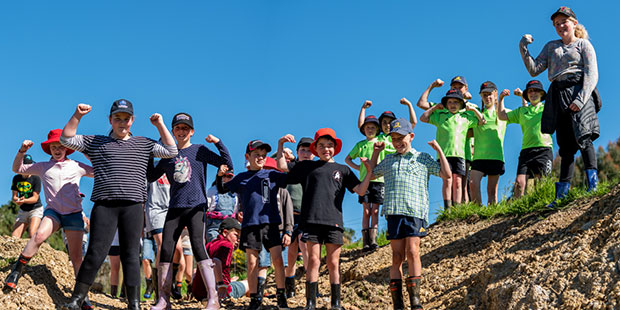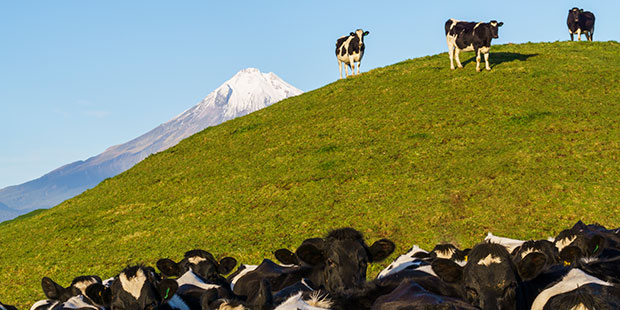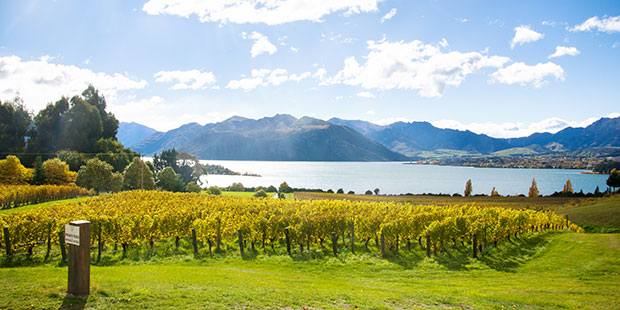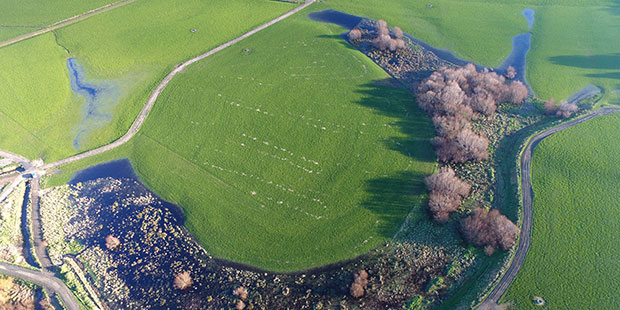"Know your wetlands" call
World Wetlands Day organisers want Kiwis to learn more about the value of wetlands.


World Wetlands Day on February 2 is being promoted as a great opportunity for Kiwis to get to know their local wetlands – often described as “the kidneys of the country”.
That’s the call from New Zealand’s National Wetland Trust which wants to drive interest in New Zealand’s wetlands and will hold a unique Tuna Hikoi/Eel Tour on February 1 – a mystery self-drive tour in the Waipa District, with challenges for families to solve along the route and prizes up for grabs.
It will centre on New Zealand’s tuna or longfin eels which make a long journey from their breeding grounds near Tonga before travelling through our estuaries to the wetlands and waterways that will be their home for up to 80 years. They then make their once in a life-time journey back to their birth place, to lay their eggs and start the life cycle over again.
“Longfins only travel to and live in New Zealand, so it’s crucial we look after them,” says Karen Denyer, executive officer of the trust. “They are our apex predator – the lions of the waterways. They are also as rare as brown kiwi and should be valued just as a taonga.”
The self-drive will start from Lake Ngaroto, Te Awamutu, on Auckland and Waikato’s Anniversary Day at 10am. It’s organised by the trust, the Department of Conservation and Waipa District Council. More information will be found here in time.
Wetlands filter, absorb and transform water contaminants, particularly run-off and shallow groundwater from farms, and help reduce the amount of undesirable elements reaching streams, rivers and lakes. However, over 90 per cent of the country's wetlands have been drained in the past 200 years, with North Island regions most affected.

Wetland. Image / Supplied by New Zealand Fish and Game Council.
Wetland. Image / Supplied by New Zealand Fish and Game Council.
Deputy chair of the trust, Melanie Dixon, says the self-drive tour – and World Wetland Days themselves – are a good vehicle for creating public interest in the need for wetland areas. The trust will also help promote independent events across the country, collating details on its website.
It is also encouraging people to “go local” and check out wetlands in their own district: “We encourage everyone to get involved by learning about their local wetland areas; it doesn't matter where you are, there will be some accessible ones near you,” she says.
“Spend some time there, study what the wildlife is doing and get to know what your local issues are. We have lots of details on our website about the locations of wetland areas people can visit.”
Dixon says the annual theme of World Wetlands Day is decided by members of the international Ramsar Convention on Wetlands organisation based in Switzerland. This year, the theme is Wetlands and Water – and Dixon says it helps highlight how wetland areas are thought of as the kidneys of the country, cleaning and purifying water, removing excess nutrients and capturing sediment.

Image / Supplied.
Image / Supplied.
“That's often why you see them in urban areas,” she says. “They have been deliberately constructed to try to improve water quality or to act like a sponge in times of rainfall, and then slowly releasing water to help reduce issues such as localised flooding.
“Wetlands also help support biodiversity – for example, they help increase the number of insects; that attracts bird life and up the food chain it goes.
“Wetland areas are also good at capturing carbon, it's a nature-based solution to climate change that is even more effective than tree planting. All up, wetlands have a disproportionately high benefit compared to other ecosystems.
“But New Zealand's wetlands need restoration and looking after; we urge councils to beef up their efforts to support and promote the great work being done by landowners and increase funding for restoration projects.”
Another World Wetland Day event is being organised by Auckland’s Matuku Link, celebrating World Wetland Day with its fifth annual open day on Saturday, February 13 from 10am to 3 pm at 111 Bethells Road, Te Henga/Bethells, Waitakere, West Auckland. There will be stalls and information from Forest & Bird, World Wetland Trust, Pest Free Waitakere Ranges, Waitakere Rivercare, Million Metres Streamside Restoration, Native Forest Restoration Trust, Birds New Zealand and others.

Image / Supplied.
Image / Supplied.
There will also be guided tours, eel feeding and the opportunity to try and spot elusive wetland birds including the matuku (bittern), pateke (brown teal), puweto (spotless crake) , matata (fernbird) or one of our many other native inhabitants.
Wetland Trust members are also planning into a dedicated Wetlands Centre: “We are looking for a funding Fairy Godmother,” says Dixon. “The centre will be somewhere people can come and learn about wetlands and their amazing flora and fauna. We have made a start via a massive restoration project at Lake Rotopiko in the Waikato.
“It's an ice-age peat lake, of which there are many in the Waikato region, and it's a combination of DoC reserve and Waipa District Council reserve. The centre is a grand plan and we don't have a strict timeline but are working towards it; a funding boost would be a step up for us.”





